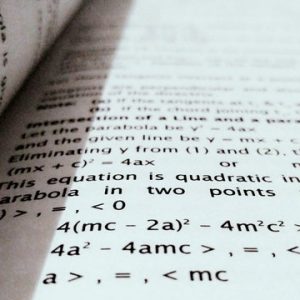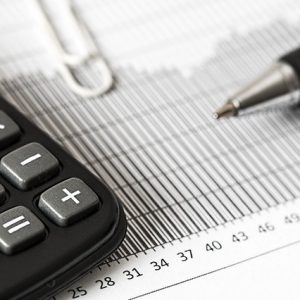
Bad GCSE grades can make you feel awful, but they are definitely not the end of the world or your educational journey. Even if you received bad results for all of your subjects, there are still plenty of options available to you and we’re going to take a closer look at these here.
The key to getting through bad GCSE results is making a plan. You need to decide which of the grades you want to improve, is it just one or two of your results that are bad? Or is it all them? If it’s just one or two, do they really matter or effect you moving on to study A-Levels? If they don’t, then you don’t need to worry. Just put it down to experience and know that for the next set of exams you’re going to need to put more work in and improve your revision techniques to make sure you get the grades you want and need.
All my GCSE Results are bad – What do I do?
If it’s a case of all your GCSE results are bad, then it’s time to look at what you want to do at University or work. What are the GCSE requirements for the Degree you want to do? Or for the promotion you want? Are the grades you hold in the needed subjects enough or do you need to look at re-sitting them. When it comes to getting a place on a Degree course, the main requirements for GCSEs is that you hold the core subjects and that you have good grades in those. So if you only got a D in your GCSE French and you’re looking to study Engineering, you don’t need to worry yourself.
What is Classed as Bad GCSE Grades?
On a personal note, bad GCSE grades really are relative to each individual student. What one student finds easy to achieve, another may find really hard to manage. So it’s important to keep that in mind when reviewing your GCSE grades. Most educational institutes and employers would class a grade of 4 (previously a grade D) or below as bad. With that in mind, if you have core GCSEs, such as English or Maths, with a grade 4 or D then you’re best bet is to look at retaking the courses.
The GCSE grading system was changed in 2014, when grades went from being letters to a numerical value. Meaning, those of you who took your GCSEs before then, will have certificates that state grades of A, B, C, D etc, but if you took your GCSEs after 2014, they will state 9,8,7,6,5.
Can I study GCSEs while Working Full Time?
Absolutely! The great thing about GCSEs is that they aren’t actually that demanding. That’s why most students take five or more subjects at any one time. The average GCSE course will take a student 120 hours of study time to complete. If it’s a double award (like Combined Science), then it’s 200 hours of study time.
Now when you consider the average working week is 40 hours, then spreading 120 hours of study time over one year really is a piece of cake for anyone who is working full time and wanting to study as well.
How do I Re-take my Bad GCSE Subjects?
Once you have made the decision to retake your GCSEs your next steps are quite simple and straight forward. First things first, you need to decide how you feel you would best study the course(s) again. You need to ask yourself if you would prefer online, in person or on your own. Why? Because the method of delivery of the course (and how you get on with it) will effect your final grade.
There is a reason you don’t already have the grades you wanted. So, you need to be honest with yourself. And decide how you best learn. Regardless of the reason, Whether there was lack of interest or inability to focus in a classroom or something else. There is a reason and you need to make sure you don’t repeat the same mistakes.
Whichever method of studying you decide on, when it comes to the actual exam side of things, you will be classed as a Private Candidate. This basically means you are entering yourself for the exams. So you will need to find an exam centre close to you that accepts private candidates and register with them as soon as you can. From there, they will provide you with all the information you need to know for sitting your exams with them.
When are GCSE Exams Held?
GCSE examinations are held in the summer of each year. With the exception of Cambridge International GCSE exams, which have a second sitting in the autumn of each year. When it’s time for exams, all students from all around the world will sit their exams at the same time. For example, if you’re taking GCSE History, you will sit the written exams for this course at the same time as a student studying the course in Portugal.
It’s always important to keep in mind the examination periods for your GCSEs when you are studying. We always advise students to create a study plan that works backwards from when they are planning to sit their exams. That way, you know exactly how many hours a week you need to put in to cover all the course materials in preparation for examination.
Do I have to put off Studying A-Levels while I Re-sit my GCSEs?
Thankfully, no! But you will need to get creative with the way that you carry on with your studies. If your chosen school or college won’t allow you to move on to studying A-Levels due to your GCSEs results, then you may have to look at studying the A-Levels you want online. That way, you can re-sit your GCSEs at the same time as continuing your studies at A-Level.
Alternatively, if you can progress onto your A-Levels still, but need to get better grades in your GCSEs, then you can enrol to study the GCSEs with an online college and study for those alongside studying your A-Levels. Again, meaning you can up your grades and continue your studying without having to delay your learning.
Ready to Retake your GCSEs?
-

Online GCSE Bundle
£550.00 Select options -
Sale!

Online GCSE Geography
£290.00 Select options -
Sale!

Online GCSE Mathematics
£290.00 Select options -
Sale!

Online GCSE Sociology
£290.00 Select options -
Sale!

Online GCSE Travel and Tourism
£290.00 Select options -
Sale!

Online International GCSE Accounting (Cambridge)
£500.00 Select options -
Sale!

Online International GCSE Biology
£290.00 Select options -
Sale!

Online International GCSE Business
£290.00 Select options -
Sale!

Online International GCSE Chemistry
£290.00 Select options -
Sale!

Online International GCSE Combined Science (Double Award)
£495.00 Select options -
Sale!

Online International GCSE Computer Science
£290.00 Select options -
Sale!

Online International GCSE Economics
£290.00 Select options
